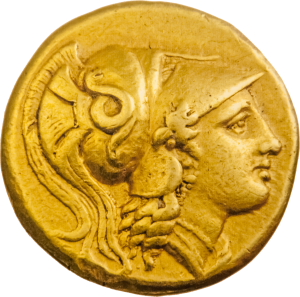 As soon as Alexander settled his current issues which could not be accomplished by his replacement, he started talking about the campaign with his council. This would change the flow of history and would distinguish the great political and strategic character of Alexander.
As soon as Alexander settled his current issues which could not be accomplished by his replacement, he started talking about the campaign with his council. This would change the flow of history and would distinguish the great political and strategic character of Alexander.
The problem that came up for the campaign was huge, especially the economical part of its enterprise. The sacrificies that had to take part for this aim were huge and were demanded by everyone. As Ploutarchos writes, when Perdikas asked Alexander what he was going to keep, the Macedonian king answered ” hope “. At the beginning of spring 334 the troops, of 7.500 men, 1.800 horse-riders and 12.000 javelin-bearers, gathered at Amphalitida and through Kerkinitida reached Amphipoli, where that met with Parmeniona, head of 2.300 horse-riders, 7.000 soldiers from the ” Public ” of the Greeks and 7.000 soldiers together with 5.000 Greek mercenaries, which in 20 days from Amphalitida reach Sisto in Ellisponto.
At his side generals such as Parmenion and his sons Philotas and Nikanor, Krateros, Koinos, Meleagros, Kleitos, Kazas, Antigonos, his dedicated guards and his council, his associates among them: Silefros, Nearhos, Evmenis, Dimaratos, Ptolemaios, Ifaistion and Perdikas.
Alexander the Great’s fleet met in Amphipoli. The Macedonian fleet with 22 three banks of cars, and 38 smaller vessels-fifty oared and thirty oared with 5.000 sailors. The fleet ” The Public ” of the Greeks, 160 trireme with 32.000 sailors as the crew. Their supplies that were transported and generally the commissariat was of excellent organisation, even up to today there have been searches for the objects, which lasted for one month. Alexander commanded the higher administration.
The army with 30.000 men from Macedonia and Paionia, Thrace, Agrianes (today’s Pomakos), Trivallos, Thessalian horse-riders, Akarnanes, Aitolous, Grete, Asia-Minor Greeks walked Ellisponto at Sisto and Alexander built 12 altazes to sacrifice for the victory. A few kilometres further away, at Elaiounta, he sacrificed at Protesilaou’s tomb, which was the first to go ashore in Asia and was killed by a Trosian, whereas in the middle of Ellisponto they sacrificed a bull and offered hoes (a water substance usually wine) in a gold globet to Poseidona and Niriedes (fairies). His deep religious belief was shown on a daily basis, even more when a big campaign started.
Alexander would fight for the victory that was the aim of all the Greeks, which saw in the face of the king of Macedonia the personification of hope, and also the person who could free the Greeks and Greece from the continuous threats of the Persians. The huge command of the union against the babaric Persians was ahead.


